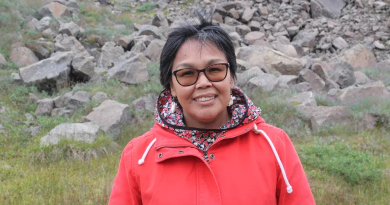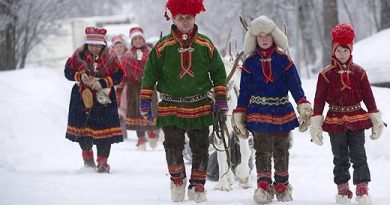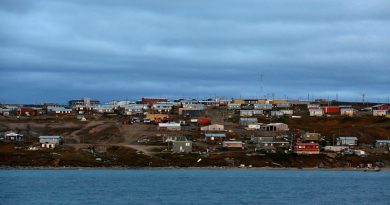New vessel hopes to renew fisheries in Inuit region of Labrador, Atlantic Canada
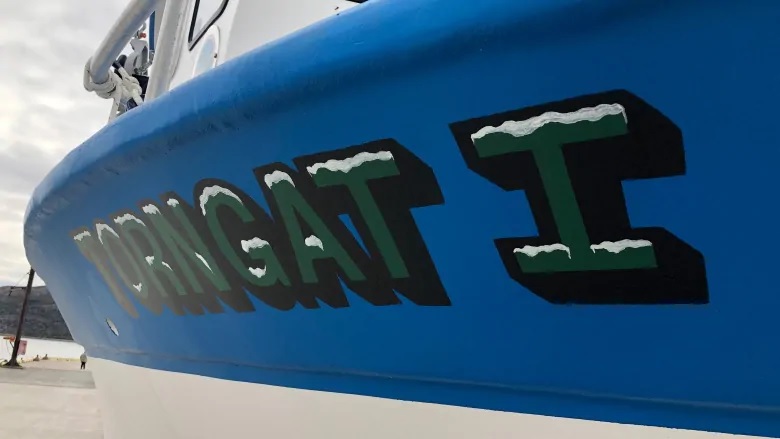
A new exploratory fishing vessel is looking to renew an old industry in Nain, in northern Labrador, Atlantic Canada.
The Torngat I, which arrived in Nain just last week, is searching for scallop and whelk in northern waters this month.
“It’s an idea to catch new species that haven’t been caught in a while,” said Bob Hardy, who is working as a fishing consultant for the Nunatsiavut government and Torngat Fishing Co-operative.
“It’s an important project.”
Hardy is working alongside some local fisherman to prove that there are viable fisheries outside of Arctic char in North coast waters. This past week, they have been dropping buckets looking for whelk as well as dragging the sea floor looking for scallop, which was regularly fished for in the community until 2008 but was abandoned because of market conditions at the time.
With an active overseas market for whelk and a good price being offered up for scallops, the time for a project like this is right, he said.
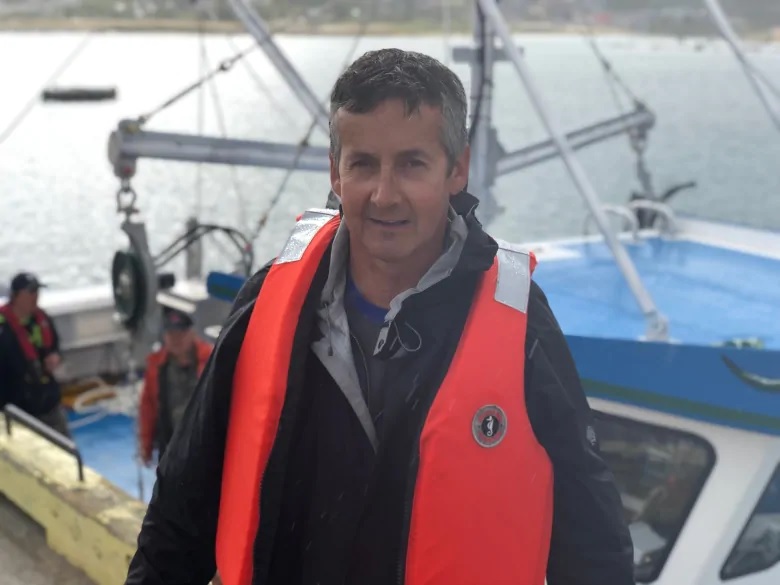
“I’m 100 per cent positive that there’s commercial volumes of scallop,” Hardy said. “The whelk is going to take a little more time to develop and we need to look at the areas and find a little more quantities than we have to date.”
The newly built vessel is equipped with hydraulics, haulers, scallop rakes and whelk pots, and began cruising Northern waters last week conducting fishing trials.
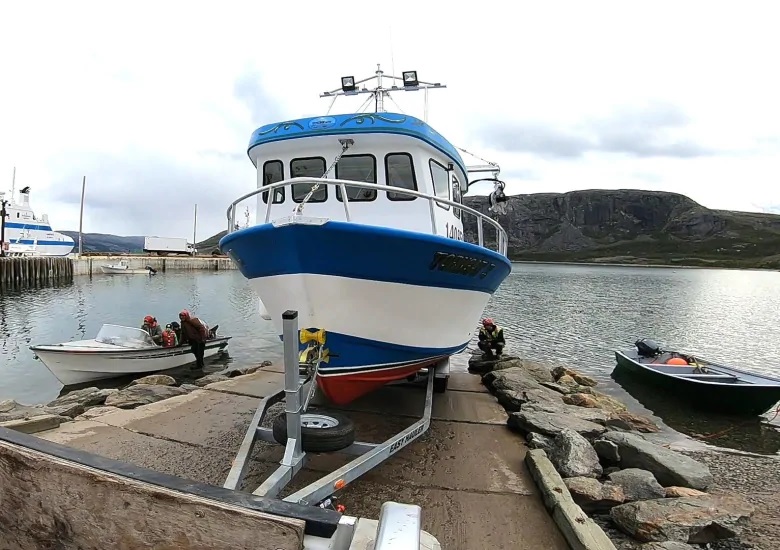
“If it develops commercially and the fishers are able to harvest sufficient quantities, it means more employment for the workers in the plant and that means more employment for Nain,” Hardy said.
While the experimentation is happening in Nain this year, in future years, the vessel, which is 100 per cent owned and paid for by the Torngat Fish Co-operative, will be used to search for the species in other communities in Nunatsiavut.
More employment
Sam Pijogge, a loader at the fish plant, remembers the old scallop fishery and the work it created.
“In the past, before, we used to work every week. There was a lot of scallops back then,” Pijogge said.

He hopes new fisheries will mean more employment.
“A little bit of work, anyway,” he said.
Fish plant manager John Ikkusek said there’s a declining number of fishers working in Nain, and the char catch has been waning recently.
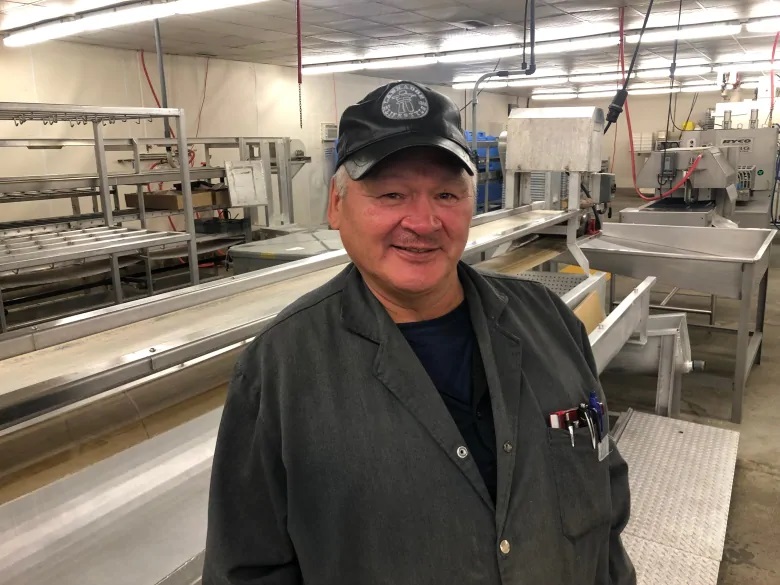
“We’re trying to get in to other things than char because the char is getting worse every year,” he said. “The catches are getting lower and lower every year — less fisherman.”
He too is certain there is plentiful amounts of scallop in the area and hopes new fisheries can stimulate new life in the fishery.
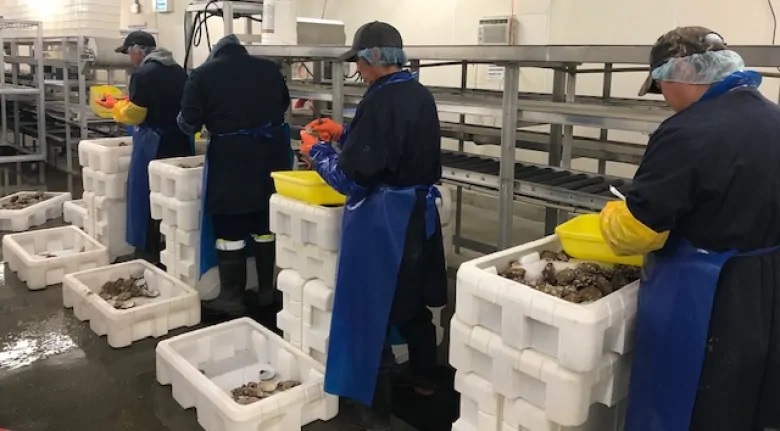
“It’s just a matter of getting the right boat and catching it,” he said.
“I hope this is it,” he added, gesturing toward the Torngat I.
Good for the community
Fisherman Martin Andersen is bringing in about half the char he used to but the price has also gone up so that’s helped him. He said he would take advantage of the new fisheries.
“You can fish char around here and scallop [too], whatever you want,” he said.
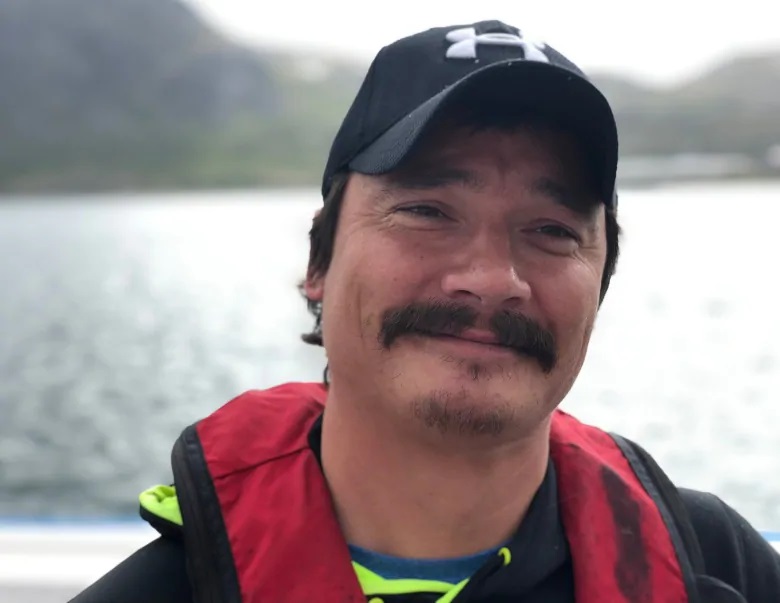
But Andersen said he doesn’t know if the potential new fisheries will attract younger people in to the profession.
“The generation now is pretty different than when I grew up,” Andersen said. “These kids nowadays on their phones, it’s still different, hey?”
He said that younger people getting into the profession would help the community.
“If you give them incentive enough, that would work,” he said.
A meaningful dedication
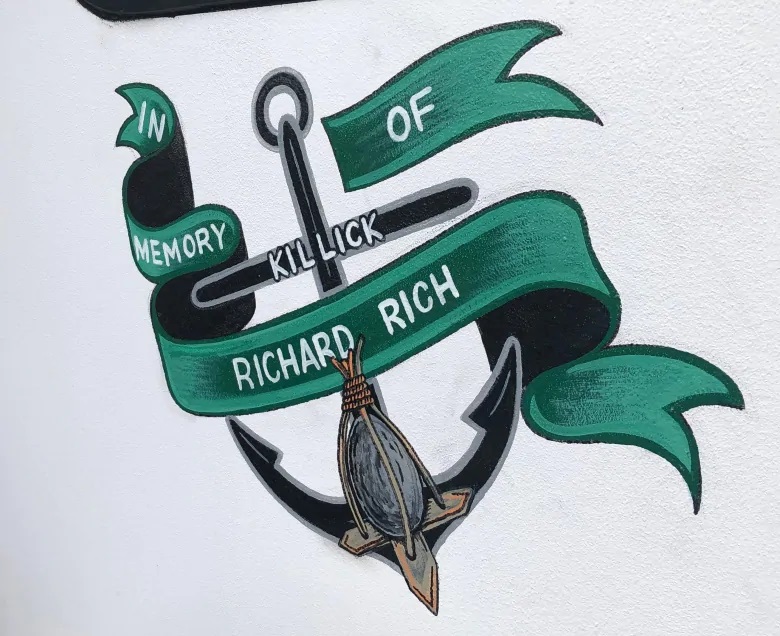
It’s difficult to miss the dedication that is painted aboard the ship for a man who recently died who had a passion for the fishery and who was instrumental in establishing the Torngat Fisheries Co-op: Richard Rich.
“It’s a tribute to him,” said Nain Angaukkak Joe Dicker. “That man fought for the fishery on the North Coast all of his working life.”
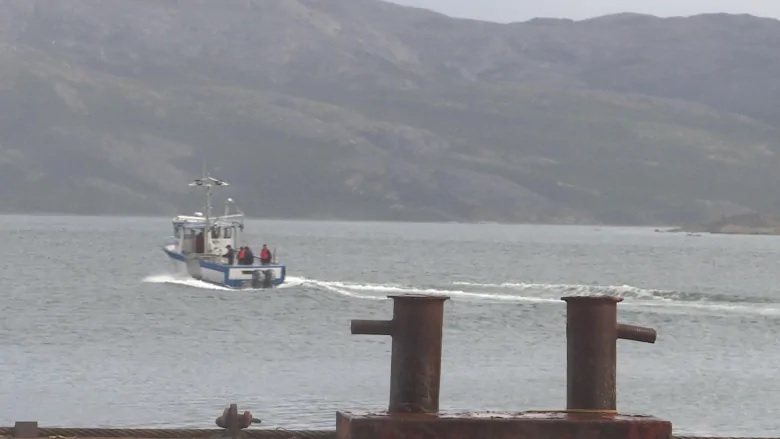
Related stories from around the North:
Canada: Fishers in Canada’s Northwest Territories complain of excessive government control, CBC News
Finland: What a Saami-led salmon rewilding project in Arctic Finland can teach us about Indigenous science, Eye on the Arctic
Greenland: Greenland Atlantic salmon catch numbers well above new quota, CBC News
Norway: Supreme Court’s crab fishing ruling reaffirms Norway’s exclusive rights over Svalbard waters, The Independent Barents Observer
Russia: Norway and Russia agree to slash cod quotas in Barents Sea, The Independent Barents Observer
Sweden: Environmentalists seek solutions to ghost net problem in Baltic Sea, Radio Sweden
United States: U.S. ratifies moratorium on fishing in High Arctic seas, Radio Canada International

